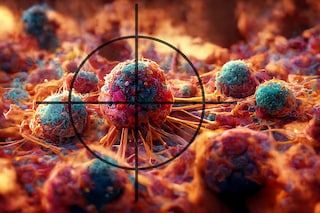India can become the new cancer capital of the world: Apollo report
Cancer, diabetes, hypertension, cardiovascular diseases, and mental health disorders have reached critical levels, significantly impacting the nation's health, says the report


Almost 14 lakh people in India had cancer in 2020. By 2025, this number is expected to rise to 15.7 lakhs, as Apollo Hospitals’ recent Health of the Nation 2024 report. In the past 20 years, there has been a significant rise in non-communicable diseases, making them the primary cause of death in the nation. The report highlights that cancer has emerged as a prominent concern, positioning India to potentially hold the title of "cancer capital" of the world.
The report observes that in India, the prevalent cancers vary between genders, with breast, cervix, and ovarian cancer being the most frequent among women, while lung, mouth, and prostate cancer are predominant among men. According to recent data, nearly 98 percent of women diagnosed with breast cancer at an early stage achieved a more favourable five-year survival rate. This underscores the crucial role of early screening and diligent monitoring, as early detection, particularly in cases like breast cancer, substantially enhances survival prospects.
In comparison to other nations, cancer diagnoses in India occur at a younger age with 52 being the average age for breast cancer diagnoses, 54 for lung cancer, and 59 for lung cancer, as opposed to the diagnose ages being in the 60s and 70s in the US, the UK, and China. According to the report, a significant hurdle in India"s battle against cancer is its inadequate screening rates, which fall far below global benchmarks, underscoring the pressing requirement for proactive steps in preventive healthcare.
Obesity, a risk factor for non-communicable diseases, has surged, with a majority exhibiting unhealthy waist-to-hip ratios and abdominal fat. The report notes that three out of four individuals are either obese or overweight, with 90 percent women and 80 percent of men surpassing recommended waist-to-hip ratios.
The report also indicates a growing prevalence of high blood pressure and prediabetes, especially among the younger population. About 66 percent of individuals in India are classified as pre-hypertensive, one in three have prediabetes, and 20 percent below 45 years of age are affected by prediabetes.
First Published: Apr 08, 2024, 15:30
Subscribe Now